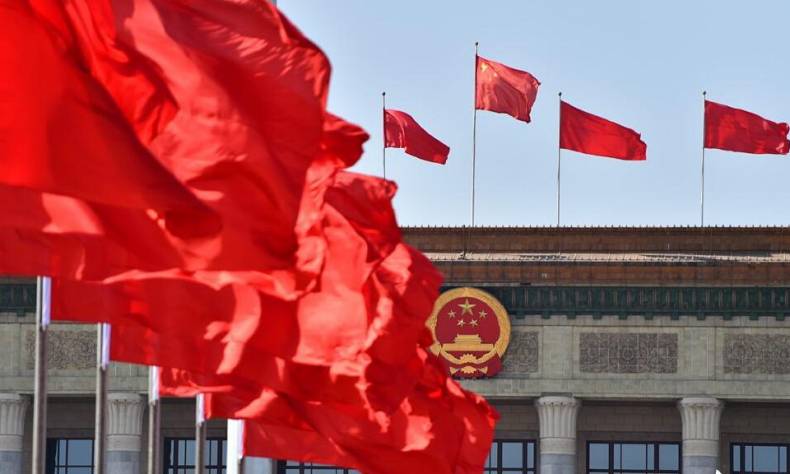
Xi Jinping Thought Elevates Marxism to A New Stage
The communist ideology has undergone various theoretical innovations ever since The Communist Manifesto was published in 1848. Marx and Engels, for the first time, evolved it into a scientific theory from a utopian hypothesis.
By Ritu Raj Subedi
The communist ideology has undergone various theoretical innovations ever since The Communist Manifesto was published in 1848. Marx and Engels, for the first time, evolved it into a scientific theory from a utopian hypothesis.
The concept of communism was basically an ideological product of the industrial revolution that swept Europe in the 19th century. It created two economic classes – capitalist and proletariat, and Marx envisioned that the working class would ultimately engineer a socialist revolution to abolish the exploitative capitalist system and build a classless egalitarian society.
In Russia and China, Marxism was applied with a different theoretical approach. Lenin orchestrated the first ever socialist revolution in a country that was not fully ripe. It was still backward from the industrial point of view. In China, Mao led a New Democratic Revolution with the peasants as its driving force. It was the innovative application of Marxism-Leninism on the Chinese soil based on its specific cultural, social and economic contexts.
At the hand of Deng, China’s experiment with communism proved amazing. He skillfully combined Marxism with market to achieve mesmerizing economic gains. Communism in the Soviet Union and Eastern Europe collapsed largely for lack of incentives, efficiency, innovation and creative use of Marxism. And Communist Party of China (CPC) detected and overcome these flaws through sweeping reforms and open-up, which is now famously known as socialism with the Chinese characteristics.
President Xi Jinping, the fifth generation leader of CPC, has now shouldered a historic responsibility of building a modern socialist nation with a more original concept based on the subjective and objective reality of the Chinese society. The international milieu is also different – it is increasingly getting global and digital with the corporate-led capitalism facing cyclic crises from the U.S. to the Europe.
General Secretary Xi took the helm of Party from the 18th CPC National Congress five years ago. The CPC has since witnessed historic shifts and achievements. It has not only enriched the ideological contents of the Party but also brought immense prosperity to the country and radiated hope for the fair globalization and democratic international order.
With evolution of the Xi Jinping Thought, the CPC has declared that socialism with Chinese characteristics has entered a new era. It builds on and further enriches Marxism-Leninism, Mao Zedong Thought, Deng Xiaoping Theory, the Theory of Three Represents, and the Scientific Outlook on Development. It reflects the latest achievements in adapting Marxism to the Chinese context.
A son of revolutionary who had fought along with Chairman Mao during the Chinese civil war, Xi did not only witness the tumultuous political events but also endured harsh rustic life. He befriended and worked with the grassroots peasants and workers, which shaped him into a pragmatic Marxist.
Xi has lucidly highlighted his visions, thoughts and strategies in his 65-page political report presented to the 19th National Congress of CPC in Beijing on October 18.
The Xi Jinping Thought contains 14 main principles that call for complete and deep reform and new developing ideas, absolute authority of the party over the people’s army, harmonious living between man and nature, and one country two systems and reunification with the motherland. It emphasizes strong army and Party leadership over all work to promote the building of a community with a shared future for mankind.
Xi has put forward a two-stage development plan for the period from 2020 to the middle of the 21st century to usher China into a great modern socialist country that is prosperous, strong, democratic, culturally advanced, harmonious and beautiful.
Offering his dialectical insight, General Secretary Xi traces the principal contradiction facing the Chinese society. It is between unbalanced and inadequate development, and the people’s ever-growing needs for a better life. Xi notes that “not only have their material and cultural needs grown, their demands for democracy, rule of law, fairness and justice, security, and a better environment are increasing.”
In order to meet their aspirations, the Chinese economy will be transformed from a phase of rapid growth into a stage of high-quality development, said the report, adding that it adopts law-based governance in all areas to curb endemic corruption that has posed the “biggest threat” to the Party. The CPC with Xi at its core has secured big success in caging many “tigers” and trapping the scores of “flies” in the last five years.
Under Xi, the CPC has been able to infuse core socialist and ethical values into the overall governance system so as to check the capitalistic deviation and gross hedonism.
China is now the world’s second largest economy with its increasing clout in the regional and global affairs but it has no intention to act like an imperialist power. “No matter what stage of development it reaches, China will never seek hegemony or engage in expansion,” Xi says.
This vision is propitious for creating an inclusive, cooperative, just, cosmopolitan and win-win international political and economic order.
Ritu Raj Subedi is an associate editor of The Rising Nepal.
Source:China.org.cn.
 Facebook
Facebook
 Twitter
Twitter
 Linkedin
Linkedin
 Google +
Google +










